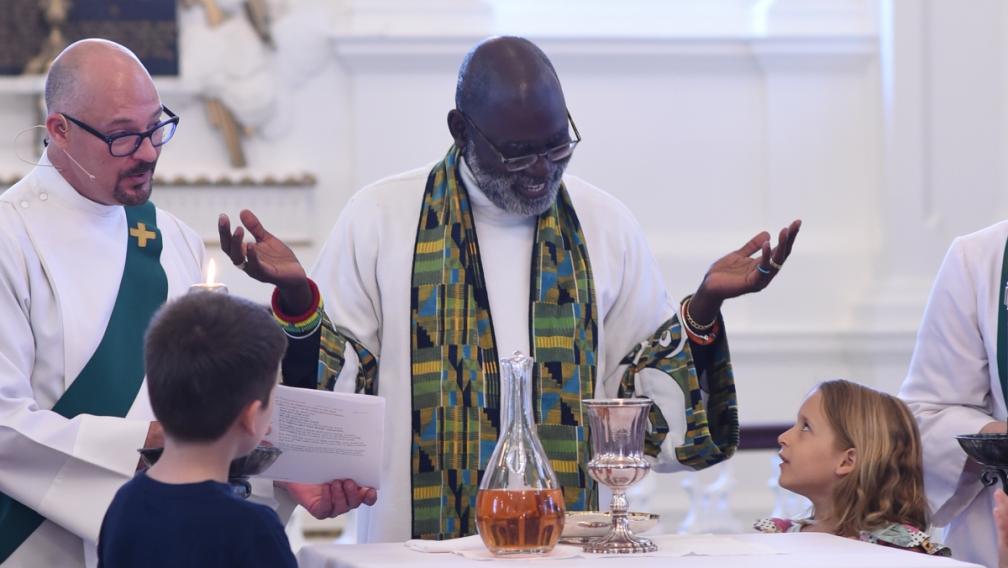From time to time Trinity Church expands the language used in worship services to evoke images that invite worshippers to think of God in creative ways. Rather than refer to God as “He,” for example, Trinity might call God “She” or “Holy One of Blessing.”
This year, Trinity is using selections from Enriching our Worship and a Eucharist Prayer adapted from The Book of Common Prayer by participants in the 2017 Episcopal Youth Event (EYE17).
Every three years, the Episcopal Church convenes an international youth event. This year, the Episcopal Youth Event welcomed nearly 1,400 participants, including the Rev. Winnie Varghese, Director of Justice and Reconciliation at Trinity, who preached at the closing Eucharist.
Changes in the prayer include referring to God as “Celestial Creator” and altering The Memorial Acclamation.
The Memorial Acclamation is statement made by the people in the Eucharist Prayer following the narrative of the Last Supper. In one version from the prayer, Eucharist Prayer A, the people say, “Christ has died. Christ is risen. Christ will come again.” The EYE17 version, however, changes it to, “Peace has died. Peace is Risen. Peace will come again.”
Whatever you may think of this particular formulation, it will probably cause you to think about who Christ is and isn’t. And what does it mean for Peace to die, rise, and come again?
The season after Pentecost (sometimes called Ordinary Time) includes the entire summer, and it’s a good time to experiment with liturgy. The rest of the year Trinity sticks to more traditional language from The Book of Common Prayer, which is used by most Episcopal churches.
These changes are not meant to subvert the church’s traditional liturgy. Throughout scripture, in fact, God is referred to as a king, a consuming fire, a fortress, and a still small voice, just to name a few. In keeping with the value Trinity places on inclusiveness, expanding the words we use to describe God demonstrates that God can’t be contained by our language.
